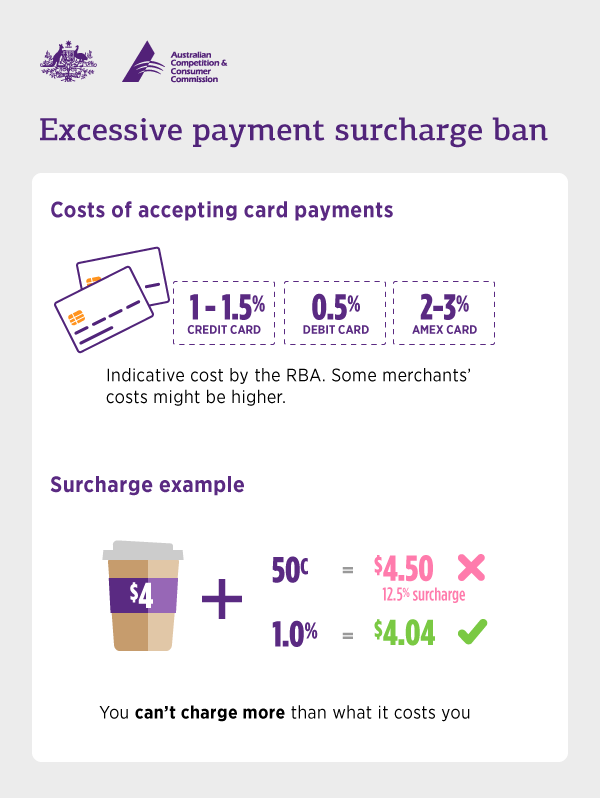- As of 1 September 2017, all businesses are banned from imposing excessive surcharges for card payments.
- The law applies to most types of card payments:
- EFTPOS (debit and prepaid)
- Visa (debit, credit and prepaid)
- MasterCard (debit, credit and prepaid)
- American Express (where an Australian financial services provider issues the card).
A surcharge is excessive if it exceeds the business’s ‘cost of acceptance’ – that is, from charging a customer more than what it costs the business to process the payment.
- Costs of acceptance can include what financial institutions charge businesses for transactions and the rental of card terminals, but cannot include a business’s internal costs such as labour or utility costs.
- Costs of acceptance will vary from business to business, so businesses that want to impose a surcharge should seek advice if they are unsure about what they can charge.
- The ACCC can require businesses and banks to provide evidence of the actual costs incurred for accepting a particular payment method. Businesses must be able to substantiate their costs, so they should keep contracts, statements, invoices etc. as evidence.
- Businesses can face court-imposed penalties of up to $1 358 910. The ACCC can also issue infringement notices with penalties of either $12 600 (body corporate) or $126 000 (listed corporation) when it believes the business has imposed an excessive payment surcharge.
- For more information see the ACCC’s media release. The ACCC has published online guidance material for businesses and the Reserve Bank of Australia provides detailed information for businesses, including how they can identify and quantify those costs that can be passed onto a consumer as a surcharge.
Posted in Industry News, Press Releases
Subscribe to our free mailing list and always be the first to receive the latest news and updates.

